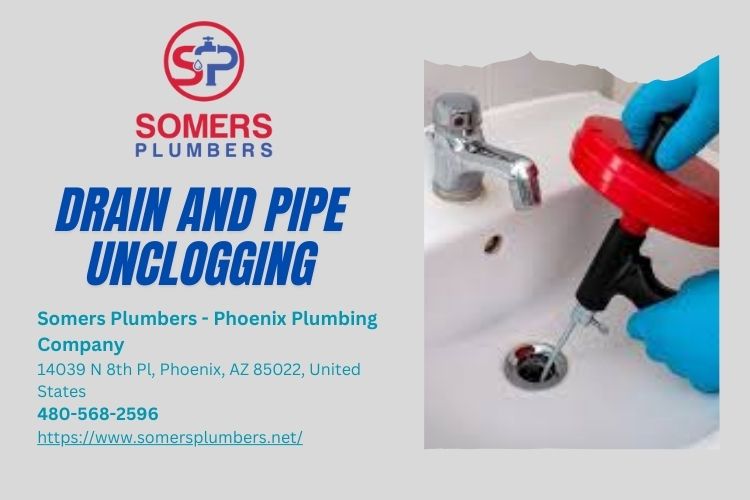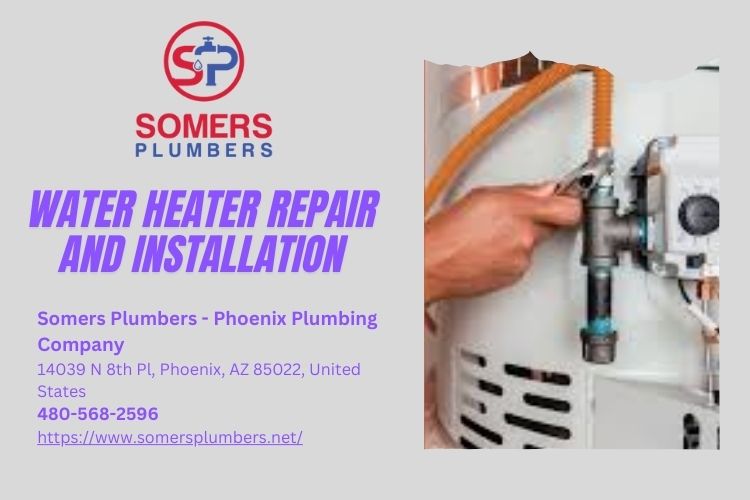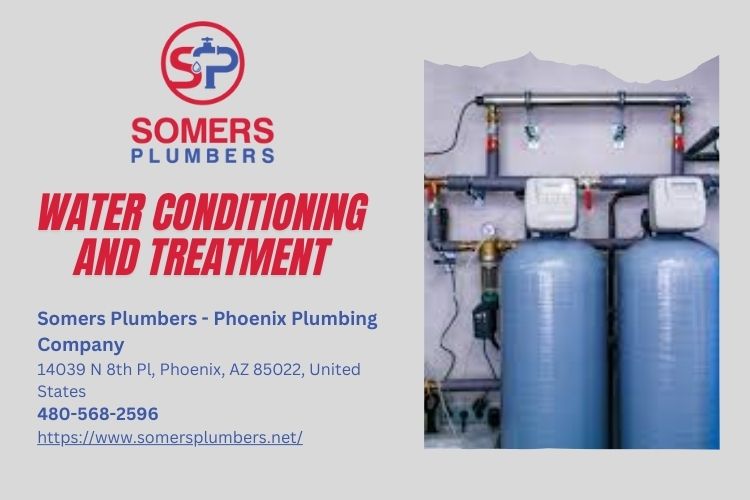Introduction
Water heaters are indispensable appliances in any household, providing hot water for showers, dishwashing, laundry, and countless other daily activities. However, when they malfunction or run out of hot water at the most inconvenient times, it can be a significant source of frustration. Understanding the nuances of water heater installation and repair can save you both time and money. In this comprehensive guide, we delve into everything you need to know about water heaters, focusing on installation and repair tips from the experts at Somers Plumbers - Phoenix Plumbing Company.
Somers Plumbers - Phoenix Plumbing Company
Address & Contact Information
- Address: 14039 N 8th Pl, Phoenix, AZ 85022, United States Phone: Call Us: (480) 568-2596
Somers Plumbers has built a reputation for excellence in plumbing services across Phoenix. With years of experience under our belts, we specialize in everything related to water heaters—from installations to repairs.

Understanding Different Types of Water Heaters
1. Conventional Storage Water Heaters
Conventional storage water heaters are perhaps the most common type found in homes today. They consist of an insulated tank that holds a specific amount of hot water (usually between 20 to 80 gallons).
2. Tankless Water Heaters
Tankless water heaters heat water directly without the use of a storage tank. When a hot water tap is turned on, cold water travels through a pipe into the unit and is heated instantly.
3. Heat Pump Water Heaters
Heat pump water heaters move heat from one place to another instead of generating heat directly. They work by transferring heat from the air or ground to heat your water.
4. Solar Water Heaters
Utilizing solar panels installed on your roof, solar water heaters harness sunlight to generate energy for heating your home's water.
The Importance of Proper Installation
Why Professional Installation Matters
When it comes to installing your new water heater, it's crucial that you consult with professionals like Somers Plumbers. Here’s why:
- Safety Concerns: Improper installation can lead to gas leaks or electrical issues. Efficiency: A professionally installed system operates more efficiently. Warranty Protection: Many manufacturers require professional installation for warranty validation.
Steps for Installing a New Water Heater
1. Choosing the Right Location
Before installation begins, selecting an appropriate location is essential. Consider factors like accessibility for maintenance and venting requirements.
2. Preparing the Space
Gather all necessary tools and ensure that you have adequate space around the appliance for ventilation.

3. Disconnecting Old Units
If you're replacing an old unit, turn off utilities and disconnect it safely before beginning installation on the new one.
4. Connecting Utilities
Follow manufacturer instructions meticulously as you connect gas lines or electrical Somers Plumbers - Phoenix Plumbing Company wiring to your new unit.
Common Challenges During Installation
1. Ventilation Issues
Improper ventilation can lead to serious hazards; always ensure proper venting based on local codes.
2. Incorrect Sizing
Choosing a unit that's too small won't meet your hot water needs, while an oversized unit will waste energy.
Water Heater Repair Tips from Somers Plumbers
Common Problems You Might Encounter
1. No Hot Water
This is often caused by a faulty thermostat or heating element.
2. Leaking Tank
A leaking tank usually indicates corrosion inside the unit; replacement may be necessary.
3. Strange Noises
Banging or popping noises could indicate sediment buildup within the tank that requires flushing.
DIY vs Professional Repair: What You Need to Know?
While some minor issues might be handled independently—like replacing a temperature-pressure relief valve—it's often best to consult professionals like Somers Plumbers for significant repairs or complicated problems.
Regular Maintenance Tips for Longevity
To prolong your unit's lifespan:
- Schedule annual inspections with professionals. Flush your tank periodically to remove sediment buildup. Check your anode rod every few years—this helps prevent corrosion inside your tank.
When Should You Replace Your Water Heater?
Knowing when it's time for a replacement can save you money in unnecessary repairs:
If your unit is over 10 years old. Continuous leaks or corrosion. Rising utility bills due to inefficiency.FAQs about Water Heaters
Q1: How often should I flush my water heater?
Flushing your water heater once a year is generally recommended to prevent sediment build-up.
Q2: What are signs my water heater needs repair?
Signs include inconsistent temperatures, unusual noises, leaks around the base, or rusty-colored hot water.
Q3: How long does it take to install a new water heater?
Typically, it takes about two hours but can vary based on existing plumbing conditions.
Q4: Can I install my own tankless heater?
It’s possible but not advisable unless you're experienced; improper installation could lead to safety hazards and inefficiencies.
Q5: What's better—gas or electric?
It depends on availability in your area and personal preference; gas tends to offer lower operational costs but requires venting considerations.
Q6: Where can I find local water heater repair services?
Look no further than Somers Plumbers! We provide local expertise in Phoenix with unbeatable service quality!
Conclusion
Navigating the world of water heaters doesn’t have to be daunting if you're equipped with knowledge and support from trusted professionals like Somers Plumbers - Phoenix Plumbing Company. Whether you need an installation or repair service near you, our team brings expertise and dedication right to your doorstep! For any inquiries regarding your plumbing needs—or if you're ready for expert assistance—don’t hesitate!
Contact Us:

- Phone: Call Us: (480) 568-2596
With this extensive guide as your roadmap through all things related to hot-water systems—you’ll feel empowered as you make informed decisions regarding installations and repairs alike!